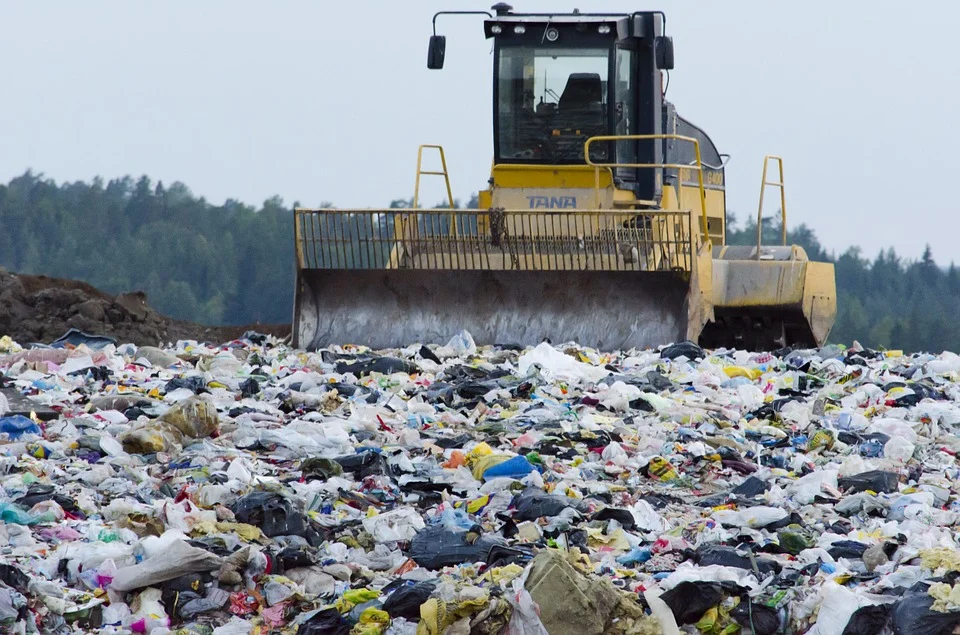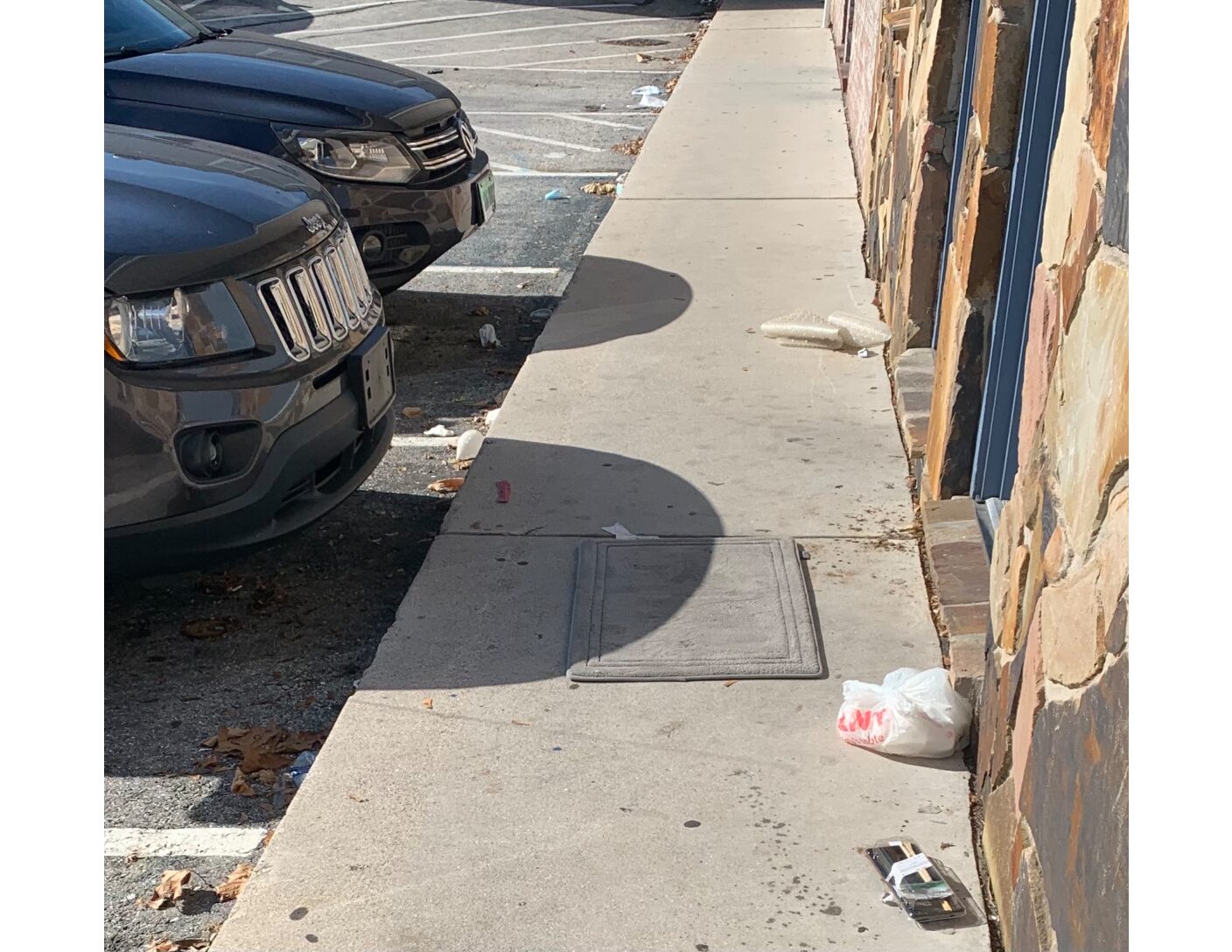Attacking Plastic Pollutants One Step At A Time
Spencer K Myler
The covid pandemic left students at Gettysburg College with no choice but to take all meals to go from popular eating destinations Servo and Bullet Hole. There was a drastic increase in plastic usage as utensils, cups, and to go containers were all made of plastic. As life on campus has returned to normalcy, the use of plastic has drastically reduced and the college is encouraging students to make mindful sustainable decisions.
With the assistance of students and faculty, Gettysburg College is beginning to implement more plastic waste mitigation practices on campus to support both the local and global environment as well as ecosystems worldwide. There are plenty of effective ways in which we can attack this major pollutants issue so it does not continue to harm humans and wildlife.

Sustainability at Gettysburg
Gettysburg College provides single-stream recycling opportunities for the entire campus, has installed 50 bottle refill stations, and departing students are able to donate reusable items for the Give It Up for Good Sale. According to Gettysburg’s sustainability website, “This sale has prevented 420 tons of material from entering the waste stream.” (2021). There is also a charge for plastic bags at dining areas such as the Bullet Hole to reduce single use plastics. Gettysburg College has made significant strides in their efforts to be sustainable and limit plastic usage, but there is more that can be achieved.
Ways to Reduce Plastic in Gettysburg
There are several basic ways that students and faculty can participate in reducing plastic waste on campus. When I asked Gettysburg ecology professor Natasha Gownaris what the best ways to reduce plastics were, she said, “Reduce single use plastics including plastic utensils and water bottles, make more sustainable seafood decisions, participate in things such as beach cleanups, and do your part by recycling.” Replacing plastic utensils would be a simple yet mindful decision and the fifty refillable water stations all over campus allow for easy access to water so purchasing it is not necessary.
Vanderbilt Setting An Example
Schools worldwide have started making significant changes on their campuses to reduce the amount of plastic that is used. One of those schools, Vanderbilt University, mentioned on their sustainability website that they will “eliminate all single-use plastic water and soda bottles in its operations throughout dining facilities, markets and vending machines.” (2021). This decision will save more than 430,000 water bottles per year. The school will be replacing the single use plastics in their dining facilities with compostable materials. Vanderbilt is setting a great example and other schools should follow in their footsteps when it comes to reducing plastics.
Negative Impacts of Plastic
The first massive negative impact of plastics that needs to be addressed is the situation it is causing in developing countries. In 2020, The Guardian newspaper looked into the massive plastic pollution footprint of big drink firms. They noticed that one of the main issues is “Communities in low- and middle-income countries continue to be swamped by mismanaged waste, including plastic pollution, that causes environmental destruction, sickness and death” (Laville 2020). Plastics are being given to developing countries and they have no option but to dump or burn them. Burning the plastic causes a ridiculous increase in emissions and also releases harmful chemicals into the air that can make people sick. This problem is so serious that “Between 400,000 and a million people die every year in low- and middle-income countries because of diseases related to plastic and other mismanaged waste” (Laville 2020). This heart wrenching fact shows truly how detrimental plastics can be to certain areas.

But Plastics are Cheap?
It is easy to see that the main reason that plastic continues to be created at an exponential rate is because it is cheap. Producers are looking at where their next dollar is going to be made and could care less about the environment and the impacts of the plastics. According to Maxwell Lulavy, a Gettysburg alum who works on plastic policy action as part of his graduate work at Columbia University, “One idea that could possibly alter the decisions of big companies would be to switch to an extended producer responsibility scheme in our country. This would shift the burden of plastic waste from the consumers onto the producers.” If large corporations had to deal with the plastic they are creating they may switch to use other materials. Another loophole in the plastic issue is only two out of seven types of plastic are truly recyclable. Even worse, the plastics that are unrecyclable may have a label that says they actually are. It goes beyond how cheap plastic is. There are many other factors such as these that go into the pollution issue that have a major impact that can be avoided.
Microplastics in Laundry Systems
Microplastics have their largest impacts in our world’s oceans and water systems but they also make a living in our washing machines. In fact, “12% of microplastics come out of the laundry system from polyester,” said Lulavy. This means that if we simply added a filter on all washing systems we would eliminate 12% of all microplastics. The question that may be asked is, why is there not widespread usage of these filters? The main reasons include that each filter would cost somewhere between forty-five to two hundred dollars and there is a lack of policy to have washing machines come with the filter as standard. These plastic filters would work similar to a lint filter where it would be taken out and emptied.

It Is Time To Change
Plastic production is currently steadily increasing and there is no sign of it stopping. The goal for countries to hit net-zero by 2050 will be impossible to reach if we continue our trajectory. I was able to ask fellow classmate David Mcfadden his opinion on plastic reduction on campus and he said, “I make as many sustainable decisions as possible when it comes to plastic but I think everyone on campus needs to contribute for it to really make a difference.” The goal to reduce plastics needs to be community-driven or else there will continue to be consistent, negative impacts locally and globally.
References
Jones, K. (2019, July 17). The Future of Campus Life: Learn how campuses are reducing plastics and other waste • The National Wildlife Federation Blog. The National Wildlife Federation Blog. Retrieved October 15, 2021, from https://blog.nwf.org/2019/07/the-future-of-campus-life-learn-how-campuses-are-reducing-plastics-and-other-waste/.
Gross, L., & Enck, J. (2021). Confronting plastic pollution to protect environmental and public health. PLoS Biology, 19(3), e3001131–. https://doi.org/10.1371/JOURNAL.PBIO.3001131
Laville, S. (2020, March 30). Report reveals ‘massive plastic pollution footprint’ of drinks firms. The Guardian. Retrieved October 15, 2021, from https://www.theguardian.com/environment/2020/mar/31/report-reveals-massive-plastic-pollution-footprint-of-drinks-firms.
Sustainability at Gettysburg. Sustainability at Gettysburg – Gettysburg.edu. (n.d.). Retrieved October 15, 2021, from https://www.gettysburg.edu/about-the-college/sustainability/.
Vanderbilt University. (1970, August 28). University eliminates single-use plastic water and soda bottles in operations on campus. Vanderbilt University. Retrieved October 15, 2021, from https://www.vanderbilt.edu/sustainability/2019/08/university-eliminates-single-use-plastic-water-and-soda-bottles-in-operations-on-campus/.
Lulavy, M (October 28, meeting on zoom)
Gownaris, N (October 28, in person meeting)
Mcfadden, D (November 9, in person)


